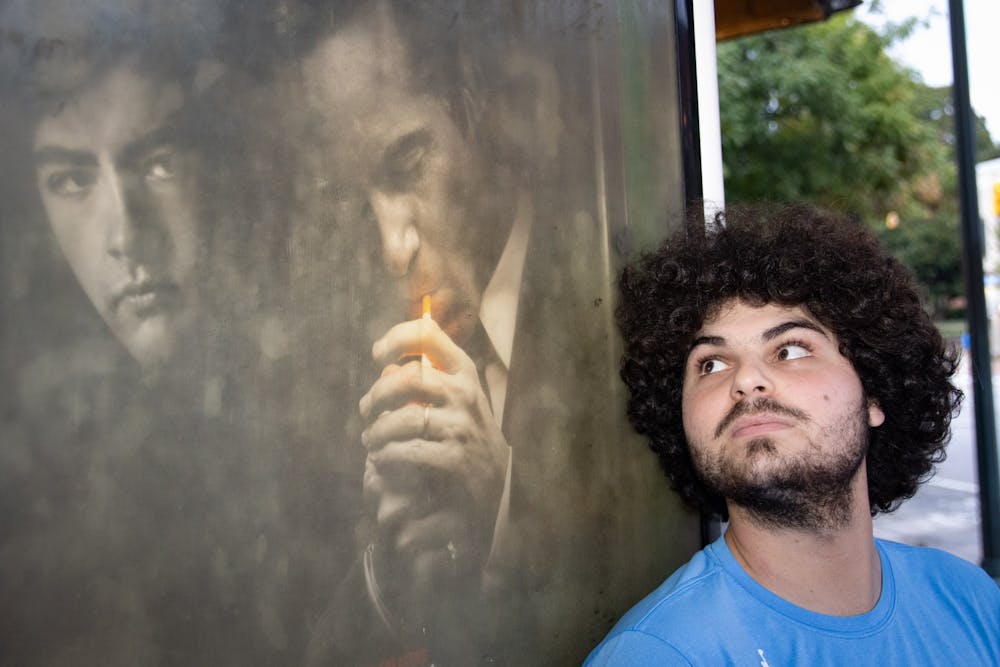Granted, I think the movie may have been a bit heavy-handed with some of its references to the show, like the simultaneous showing of Christopher Moltisanti’s (Michael Imperioli) tombstone while his narration described his death.
Still, there were subtle references that were an example of fan service done exquisitely well. Not only did the film feature familiar locales like Satriale’s Pork Store, but it also showed us what really happened during moments that were only hinted at in the show, like when Johnny Soprano (Jon Bernthal) got busted at the carnival, and when he shot a bullet through his wife Livia’s (Vera Farmiga) hair during an argument.
There were also familiar verbal cues for viewers to pick up on: amateur viewers could catch the lovable “Ohs” and “Hohs” from just about every character involved. More enthusiastic fans of the show probably picked up on Uncle Junior (Corey Stoll) saying Tony (Michael Galdonfini) “never had the makings of a varsity athlete,” and Livia berating Tony with her signature “Poor you.”
The story itself felt like a very realistic account of the events that the show hinted at in terms of the vibrant life and tragic downfall of Dickie Moltisanti (Alessandro Nivola). The film leads off from a tumultuous time in his life, showing how his strained relationship with his father (Ray Liotta) led to his ascent within the Di Mateo crime family, and even to his blossoming relationship with his goomah — the woman he’s having an affair with — Giuseppina (Michela De Rossi).
De Rossi, herself, was outstanding, treating viewers to a performance that was not only convincing, but that effortlessly contrasted her independence and strength with the emotional damage inflicted by her toxic relationship.
Ray Liotta, too, was great in his role — not as Dickie’s father, “Hollywood Dick,” but as his twin uncle, Sally. Though his eccentricity as Hollywood Dick was a bit abrasive, his sage advice and aloofness as Sally tempts viewers into feeling sympathy for a convicted murderer.
The two characters central to the film, Uncle Dickie and the teenage Tony Soprano, though, were emblematic of the struggles I alluded to earlier.
Nivola does a decent job playing Tony’s likable but morally bankrupt uncle. But his performance pales in comparison to that of the late James Gandolfini, who played the titanic Tony Soprano in the show. With a character as layered, conflicted and funny as the elder Tony, Nivola’s Dickie seemed simple and even uninteresting in comparison.
Michael Gandolfini, James’ son, did alright in capturing the energy of a conflicted adolescent who was merely trying to win the approval of his father figures. However, he was not given enough screen time for his angst to be sufficiently developed, so his mourning of Uncle Dickie at the end of the movie fell flat.
That ending was meant to provide Tony with the foundation he’d need to become one of the most notorious gangsters in media history. Instead, its poor execution made Tony’s emotional outpouring and literally latching onto his uncle seem forced, as though even the writers knew there was nothing they could do to fully recapture the magic of the long-since finished series.
I liked this movie. I loved the show too much to not at least enjoy it.
But as I watched the closing credits roll down the screen, I wondered, “Did this movie need to be made? Did this ‘Sopranos Story’ need to be told?”
To get the day's news and headlines in your inbox each morning, sign up for our email newsletters.
I don’t know.
7.5/10
@gmolero1
opinion@dailytarheel.com




